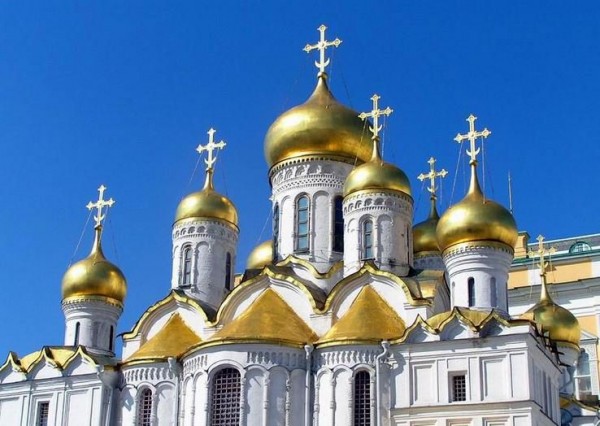
Recently, the opening of the Constantinople Patriarchate’s metochions in Ukrainian cities Kyiv and Lviv has become quite a hot topic.
Not long ago, Director of the Department for Religious Affairs and Nationalities of the Ministry of Culture of Ukraine AndriyYurash confirmed this information in an interview to the RISU news agency and claimed opening of the missions “is an irreversible process”.
Though there are still no concrete terms, according to Yurash, the agreement has been reached. The advantages of such an “expansion” are evident for the Ecumenical Patriarchate. First of all, Constantinople would restore its historic jurisdiction on the Ukrainian territory. Since the Christianizationof Rus’, the Kyivan archdiocese was actually an autonomous local church under the governance of Constantinople. However, in 1686 it was moved under the jurisdiction of the Moscow Patriarchate. Now, historical justice would be served, and the international influence and reputation of Phanar would grow.
On the other hand, the new metochions can provoke a serious inter-Orthodox conflict as the Russian Orthodox Church (ROC) believes Ukraine to be its territory, and for more than 300 years none of the Churches has questioned its rights. Though, it doesn’t confuse Constantinople, which seeks the permission of Kyiv only. The scale of such conflict is hard to predict but I’m afraid it would be unprecedented in modern history.
Today, Ukraine is one of the hotbeds of unrest in Europe. The lasting armed conflict, devastated economy and criminality – these are the results of the 2014 revolution and the battle for influence between Kyiv and Moscow which followed later. Obviously, religion is also involved in the confrontation. Currently, there are two largest denominations in Ukraine: the Ukrainian Orthodox Church – Kyivan Patriarchate (UOC KP, led by Patriarch Filaret) and the Ukrainian Orthodox Church – Moscow Patriarchate (UOC MP, led by Metropolitan Onufry). According to Kyiv officials, the only legitimate church in the country is the UOC KP, but it hasn’t been officially recognized by any Local Church and its head Filaret was anathematized by the Moscow Patriarchate.
Being the representative of Moscow, the UOC MP is constantly under the pressure of Kyiv and various nationalist groups. Its property is confiscated, and churches attacked. The position of the UOC MP (and consequently of the Moscow Patriarchate) in Ukraine is unfortunate, and things for it can become worse when Constantinople comes. The Ukrainian government seems to be planning to give the Kyivan Patriarchate almost unlimited power with the help of Phanar.
It looks like Kyiv views the Constantinople mission as some kind of a diplomatic office, but not as a church jurisdiction. “It would be best if it had a form of a permanent representation of the Ecumenical Patriarch (NB: a representation, not a religious organization),” Yurash’s words confirm it in a way. This mission is aimed at providing the long-awaited recognition of the UOC KP and its head Filaret.
Now, the Kyivan Patriarchate is actually a “puppet church” and an obedient tool of the Ukrainian policy. Filaret supports the Ukrainian government as he had supported the Soviet one, advocates Ukrainian nationalism and visits the USA to demand more weapons against the Russian aggression. But he publicly claims that he won’t bend before Constantinople. It means that the case of the UOC KP subject to the Ecumenical Patriarchate is not discussed. Ukrainian officials openly state this at the negotiation table. Phanaris presented with some bonuses, but it won’t be made a full-fledged participant of the process.
As a result, on the one hand, Constantinople would unlikelyincrease its influence in Ukraine greatly, and on the other, being the Ukrainian government’s puppet, would stir the flames of the conflict between the Orthodox Kyiv and Moscow, which would undoubtedly cause a backlash from the ROC.
Probably, those Ecumenical hierarchs, who believe that their return to Ukraine provoking a conflict is a good idea, should calm down and think whether the game is worth the candle. All Constantinople will actually get are a couple of real estate items. Meanwhile, Patriarch Bartholomew’s lasting attempts to unite Orthodox Churches would lead to an opposite effect – to another confrontation.
Jelena Rakcevic is a freelance journalist, graduating with a Masters in International Relations from the University of Montenegro in 2013. Her reports have been published by EurasiaReview.com, ModernDiplomacy.eu and other digital media.









































